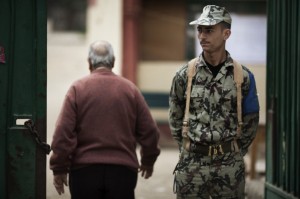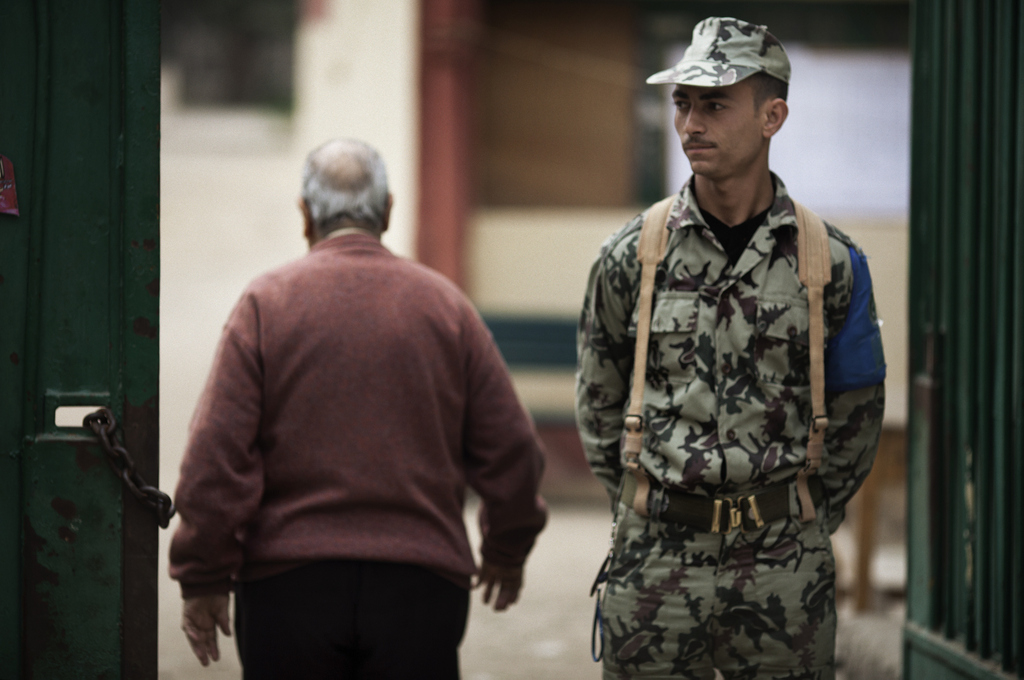
(AFP File Photo / Marco Longari)
Military and police personnel will be allowed to vote in elections for the first time after the Supreme Constitutional Court declared for the second time election bills submitted by the Shura Council unconstitutional.
The court referred the bills back to the upper house of parliament with suggested amendments after finding four articles within the House of Representatives elections bill and nine within the political participation bill unconstitutional.
The two bills make up the legislation governing the upcoming elections for the lower house of parliament.
Subsection 2 of Clause 1 of Article 13 of the House of Representatives elections bill was deemed unconstitutional for failing to explicitly ban the use of religious slogans in campaigning.
Failing to ban these slogans would lead to prejudice, prevent voters from choosing candidates on an objective basis, violate the principle of equal citizenship, as well as being against the principle of equal opportunity, which violates articles 5, 6, 9, 33, and 55 of the constitution, the court said in its report.
It also deemed the way in which voter districts were drawn up, detailed in Article 3, is in violation of Article 113 of the constitution which specifies that districts must ensure fair representation of governorates and fair representation based on population counts.
The court also found nine articles in the political participation bill unconstitutional, most notably the articles banning police and military personnel from voting. If the Shura Council adopts the court’s amendments, military and policemen will be allowed to vote in elections for the first time.
Articles in the political participation bill requiring private-owned media to dedicate equal coverage to all candidates were also deemed unconstitutional in that they violate constitutional articles on freedom of speech, press, and expression, the court said.
It also determined that the way the bill outlines how Egyptians abroad would vote is unconstitutional because it has voters mail in their ballots which goes against constitutional provisions requiring full judicial oversight over all elections.
This is the second time the court deemed electoral legislation submitted by the Shura Council unconstitutional. It previously found electoral laws passed in April unconstitutional and sent them back with comments.
Shura Council members amended the drafted election bills but failed to return it to the court to ensure the amendments fall in line with its ruling, instead referring it to President Mohamed Morsi, who immediately signed it into law and called for elections.
As a result, an administrative court ruled to suspend elections on the basis of the Supreme Constitutional Court not having approved the amended bill. The presidency appealed the suspension but Shura members decided to draft new bills and refer them to the Supreme Constitutional Court to expedite the process rather than wait for the appeal, which was eventually rejected.
Article 177 of the constitution requires the president or parliament to submit all electoral draft bills to the Supreme Constitutional Court for prior approval. If the court deems a bill constitutional it passes, otherwise it is referred back to the legislator for amending with the court’s remarks attached.

